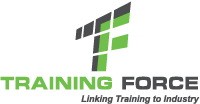The year has barely begun, and we find ourselves in the middle of the 1st quarter of 2023. This is generally the time where many medium-to-large companies are facing BBBEE and financial year end deadlines, and most are in the planning phase for submission of their Workplace Skills Plan Targets and Annual Training Reports. We have found that accessing funding grants can be a challenging process for many individuals and organisations especially with the ever-changing SETA/QCTO Landscape.
Most larger companies have a comprehensive understanding of Grant Applications, but there are still so many emerging companies that do not necessarily know that a Workplace Skills plan (WSP) is a strategic proposal where you capture all your planned training for the coming year and the ATR is a report of actual training completed during the previous year, and what it entails. These organizations are often paying Skills Development Levies but don’t know how to access mandatory and discretionary grants. It has been a great pleasure to have helped emerging and established companies with their strategic planning, specifically unlocking of mandatory and discretionary grants. We continue to do so with any of our clients who require this service.
In most circles a perception exists that the SETA landscape is laden with red tape, and to some extent there is truth therein, but inversely any funder would have qualifying criteria for applicants. The challenge then is to have the understanding of how to navigate in this arena. To this day, we have found that there are still too many organisations missing the non-negotiable 30th April deadline for submission of their WSP/ATR which immediately results in BBBEE non-compliance for the Skills Development Category. It can only benefit your organization to meet this deadline, so that you are able to claim your Mandatory and Discretionary Grants. Not only do you fulfil a vital part of your BBBEE, but you can also use the discretionary grant funding to supplement or partially subsidize your training budget. Furthermore, should you opt for learnership interventions, the grant awarded results in the associated learnership tax incentives, which is always a win-win.
We always work to ensure that employers have the best opportunity for being awarded funding. However, we have often found that many companies do not adequately prepare their Pivotal Plan. Companies must declare their pivotal plans on their WSP and, when the discretionary windows open, apply for the pivotal training declared in their WSP and not derail from what they planned as it may very well result in not being awarded funding. When you are in the planning phase of your workplace skills plan, we encourage you to reach out to us so as to ensure that your planned interventions are recorded correctly from the get-go. We can then provide you with the appropriate guidance if needed and assist in the correct supporting documents for your application. It is always the culmination of a solid partnership of learner, employer and training provider that results in project success. Together, we can relish in niceties such as the recognition of the learner’s achievements and graduation ceremonies, and placement opportunities and promotions made possible for the beneficiaries of our training.
We continue to work tirelessly to bring skills solutions to industry and we look forward to helping you with your SETA applications. We are a provider that understands the National Skills Development Agenda and Strategy and are excited to play a meaningful part in creating a difference through skills development.

